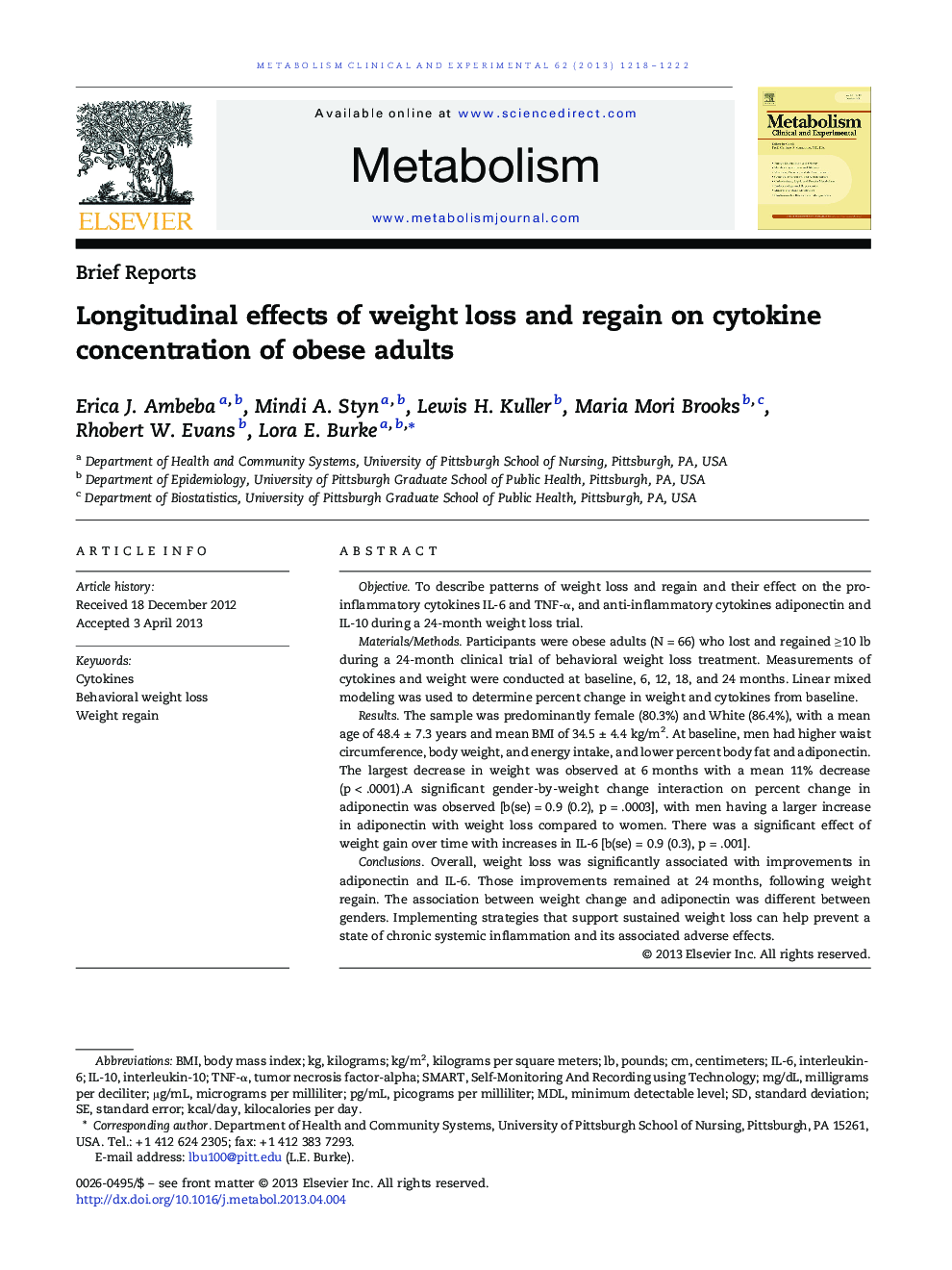| Article ID | Journal | Published Year | Pages | File Type |
|---|---|---|---|---|
| 5903564 | Metabolism | 2013 | 5 Pages |
ObjectiveTo describe patterns of weight loss and regain and their effect on the pro-inflammatory cytokines IL-6 and TNF-α, and anti-inflammatory cytokines adiponectin and IL-10 during a 24-month weight loss trial.Materials/MethodsParticipants were obese adults (N = 66) who lost and regained â¥Â 10 lb during a 24-month clinical trial of behavioral weight loss treatment. Measurements of cytokines and weight were conducted at baseline, 6, 12, 18, and 24 months. Linear mixed modeling was used to determine percent change in weight and cytokines from baseline.ResultsThe sample was predominantly female (80.3%) and White (86.4%), with a mean age of 48.4 ± 7.3 years and mean BMI of 34.5 ± 4.4 kg/m2. At baseline, men had higher waist circumference, body weight, and energy intake, and lower percent body fat and adiponectin. The largest decrease in weight was observed at 6 months with a mean 11% decrease (p < .0001).A significant gender-by-weight change interaction on percent change in adiponectin was observed [b(se) = 0.9 (0.2), p = .0003], with men having a larger increase in adiponectin with weight loss compared to women. There was a significant effect of weight gain over time with increases in IL-6 [b(se) = 0.9 (0.3), p = .001].ConclusionsOverall, weight loss was significantly associated with improvements in adiponectin and IL-6. Those improvements remained at 24 months, following weight regain. The association between weight change and adiponectin was different between genders. Implementing strategies that support sustained weight loss can help prevent a state of chronic systemic inflammation and its associated adverse effects.
